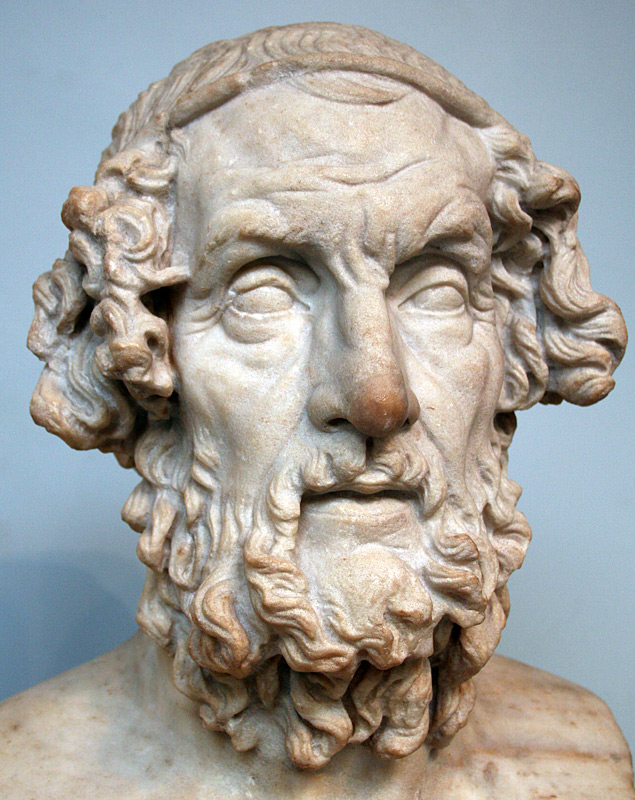Homér najznámejšie citáty
Homér citáty a výroky

„Nie je na svete nič slabšieho než muž.“
Prisudzované výroky
Varianta: Na svete niet nič slabšie ako muž.
Homér: Citáty v angličtine
XXIV. 505–506 (tr. Robert Fagles); Priam to Achilles.
Richmond Lattimore's translation:
: I have gone through what no other mortal on earth has gone through;
I put my lips to the hands of the man who has killed my children.
Iliad (c. 750 BC)
III. 156–158 (tr. Robert Fagles); of Helen.
Richmond Lattimore's translation:
: Surely there is no blame on Trojans and strong-greaved Achaians
if for long time they suffer hardship for a woman like this one.
Terrible is the likeness of her face to immortal goddesses.
Iliad (c. 750 BC)
“Just take in peace what gifts the gods will send.”
XVIII. 142 (tr. Robert Fagles).
Odyssey (c. 725 BC)
XI. 206–208 (tr. Robert Fagles); Odysseus attempting to embrace his mother's spirit in the Underworld.
Compare Virgil, Aeneid, II. 792–793 (tr. C. Pitt):
: Thrice round her neck my eager arms I threw;
Thrice from my empty arms the phantom flew.
Odyssey (c. 725 BC)
XXII. 303 (tr. Robert Fagles); spoken by Hector.
Richmond Lattimore's translation:
: But now my death is upon me.
Let me at least not die without a struggle, inglorious,
but do some big thing first, that men to come shall know of it.
Iliad (c. 750 BC)
“If only strife could die from the lives of gods and men”
XVIII. 107–110 (tr. Robert Fagles); spoken by Achilles.
Iliad (c. 750 BC)
Kontext: If only strife could die from the lives of gods and men
and anger that drives the sanest man to flare in outrage—
bitter gall, sweeter than dripping streams of honey,
that swarms in people's chests and blinds like smoke.
“Rage—Goddess, sing the rage of Peleus' son Achilles”
I. 1–5 (tr. Robert Fagles).
Iliad (c. 750 BC)
Kontext: Rage—Goddess, sing the rage of Peleus' son Achilles,
murderous, doomed, that cost the Achaeans countless losses,
hurling down to the House of Death so many sturdy souls,
great fighters' souls, but made their bodies carrion,
feasts for the dogs and birds.
XXIII. 103–104 (tr. R. Lattimore); Achilles after seeing Patroclus' ghost.
Iliad (c. 750 BC)
XIV. 80–81 (tr. Robert Fagles).
Richmond Lattimore's translation:
: There is no shame in running, even by night, from disaster.
The man does better who runs from disaster than he who is caught by it.
Iliad (c. 750 BC)
“There is a time for many words and there is a time also for sleep.”
XI. 379 (tr. A. T. Murray).
Odyssey (c. 725 BC)
Zdroj: The Odyssey
“Sleep, delicious and profound, the very counterfeit of death”
Zdroj: The Odyssey
“Each man delights in the work that suits him best.”
XIV. 228 (tr. Robert Fagles).
Odyssey (c. 725 BC)
Zdroj: The Odyssey
IX. 366 (tr. Robert Fagles); Odysseus to Polyphemus.
Odyssey (c. 725 BC)
Varianta: Nobody—that's my name.
Zdroj: The Odyssey
“some things you will think of yourself,… some things God will put into your mind”
Zdroj: The Odyssey


